How to prepare for a long-term camping trip
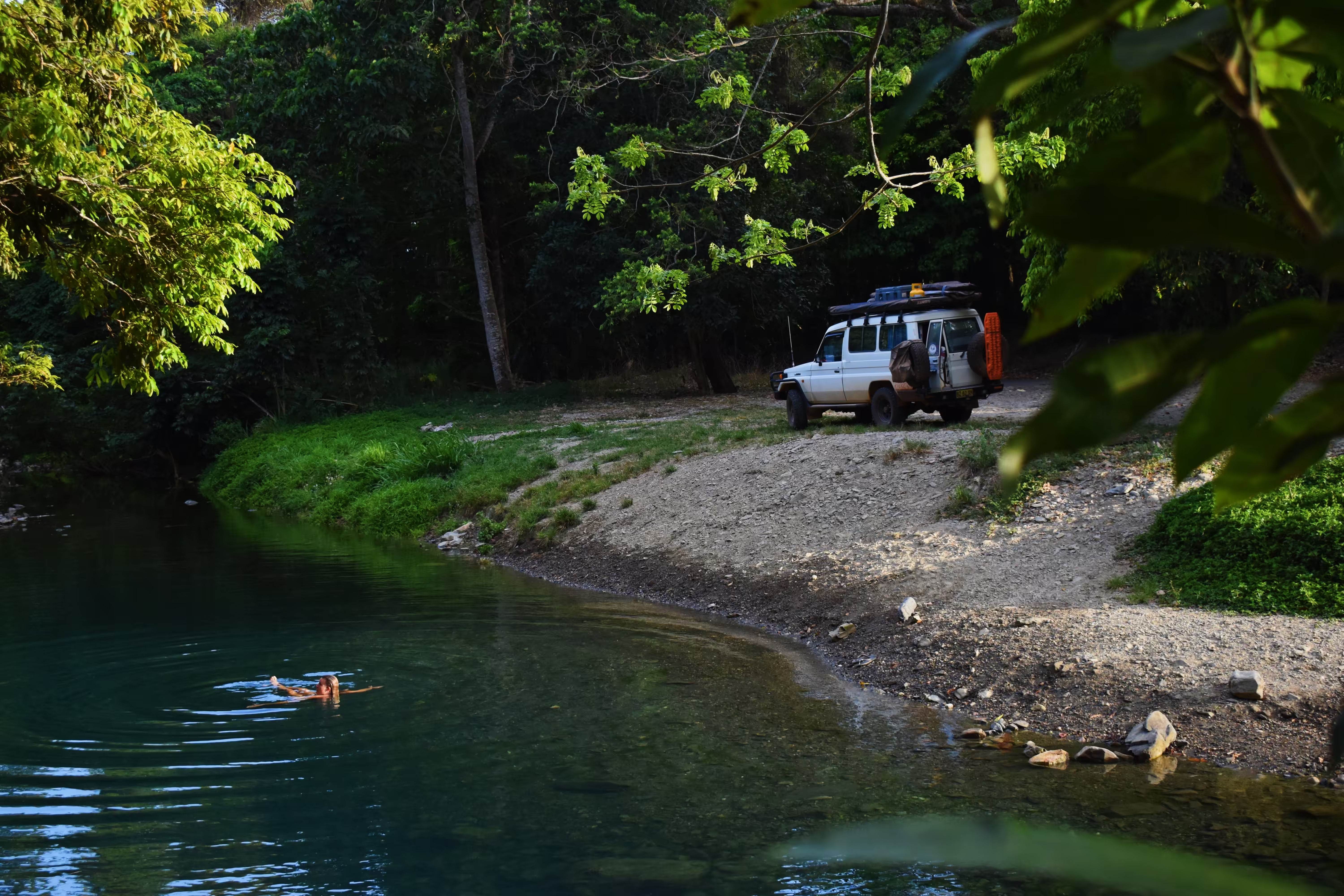



Travelling Australia or going on a long-term camping trip is a dream for a lot of people. Whether it’s pulling the kids out of school and hitting the road for three months, quitting your job to travel full time, or simply retiring to the wide open road.
Regardless of your situation or camping experience, it can feel overwhelming to even begin to plan a long-term camping trip like this. But I’m here to tell you that anyone can do it, and it’s absolutely worth it. We travelled for 14 months around Australia in our Troopy. Here are my top 20 tips to help you prepare for your own trip.
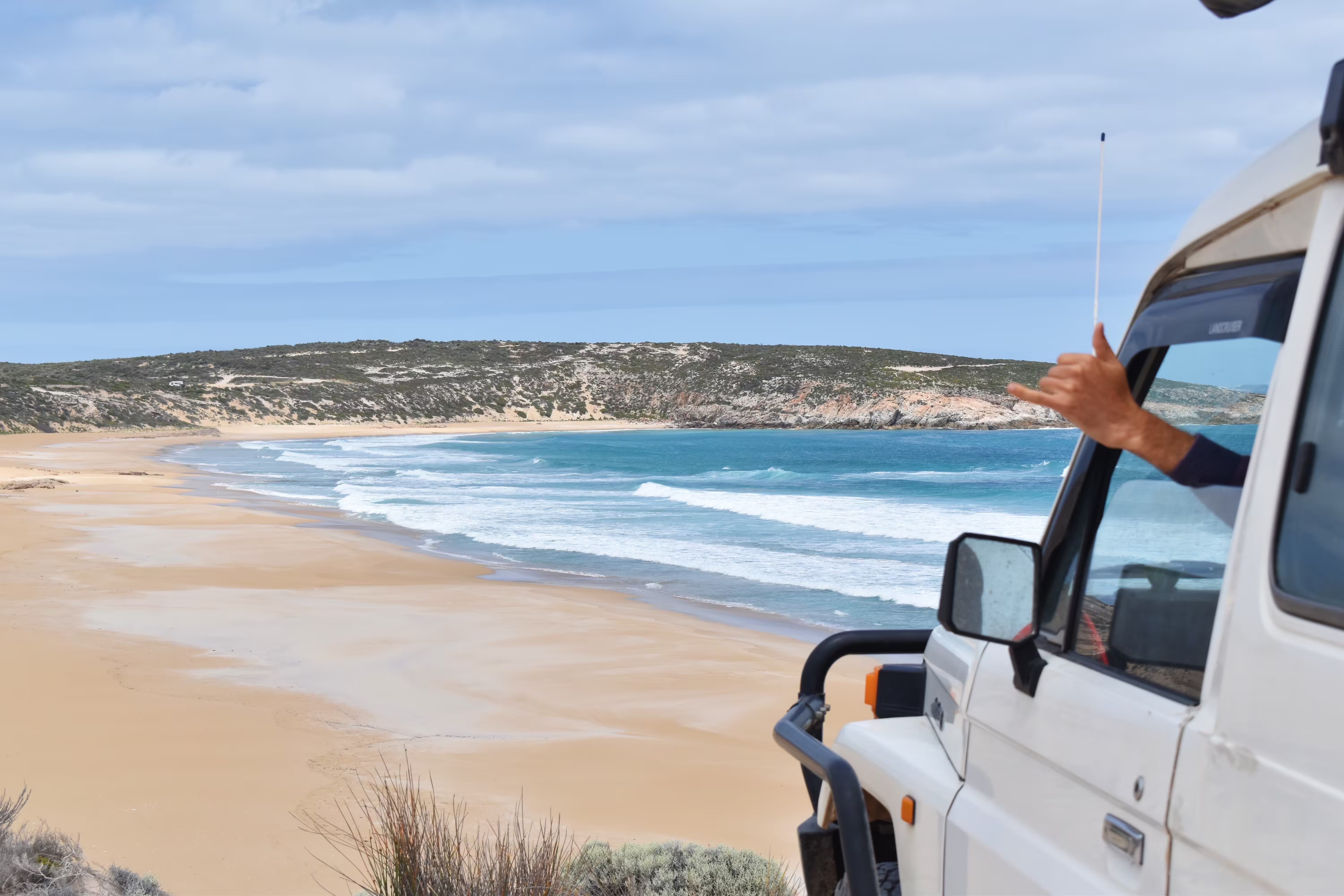
You might be years away from starting your big trip, but it’s always best to start saving as early as possible. Set up a separate savings account and start putting in a little bit every week. When you’re ready to hit the road, you’ll be financially prepared. Even if you plan to travel on a shoestring, the more you save, the longer term you’ll be able to camp.
People have different budgets for everyday life and the same principle applies to long-term camping. The beauty of this kind of travel is that you can do it as cheap or as expensive as you’d like. Just make sure the budget you create is realistic and based on your own lifestyle and needs.
When you’re long-term camping in Australia, you’ll likely be racking up more kilometres and doing more off-road driving than you would be at home. This means you’ll need to service your car more frequently and expect the wear and tear of your car to happen faster while on the road. Adding unexpected breakdowns on top of all this can make for an expensive trip if you don’t plan for it.
Don’t plan on spending every cent you’ve saved for your long-term camping trip. Having some cash set aside for use only in emergencies (like unexpected flights home to see family or emergency accommodation if you get ill) is great for peace of mind. And if you don’t end up needing it, perfect. You’ve got some extra savings for when you get home or to contribute to your next trip.
Many people choose to work while travelling and camping long-term. This might be working their regular job remotely, doing freelancing or paid content creation, or working along the way in towns they visit. If you can make it work for you, working while travelling is a great way to see Australia while still making money.
But it’s not practical for everyone. Some things to consider would be whether you need reliable internet access, how easy or comfortable it is to complete work in your camp set-up, whether you’ll need to be connected to power and how long you’ll be away. When we went on our trip, we took a year off work and then worked for a few months at the local elections, which funded the last six months of our travels.
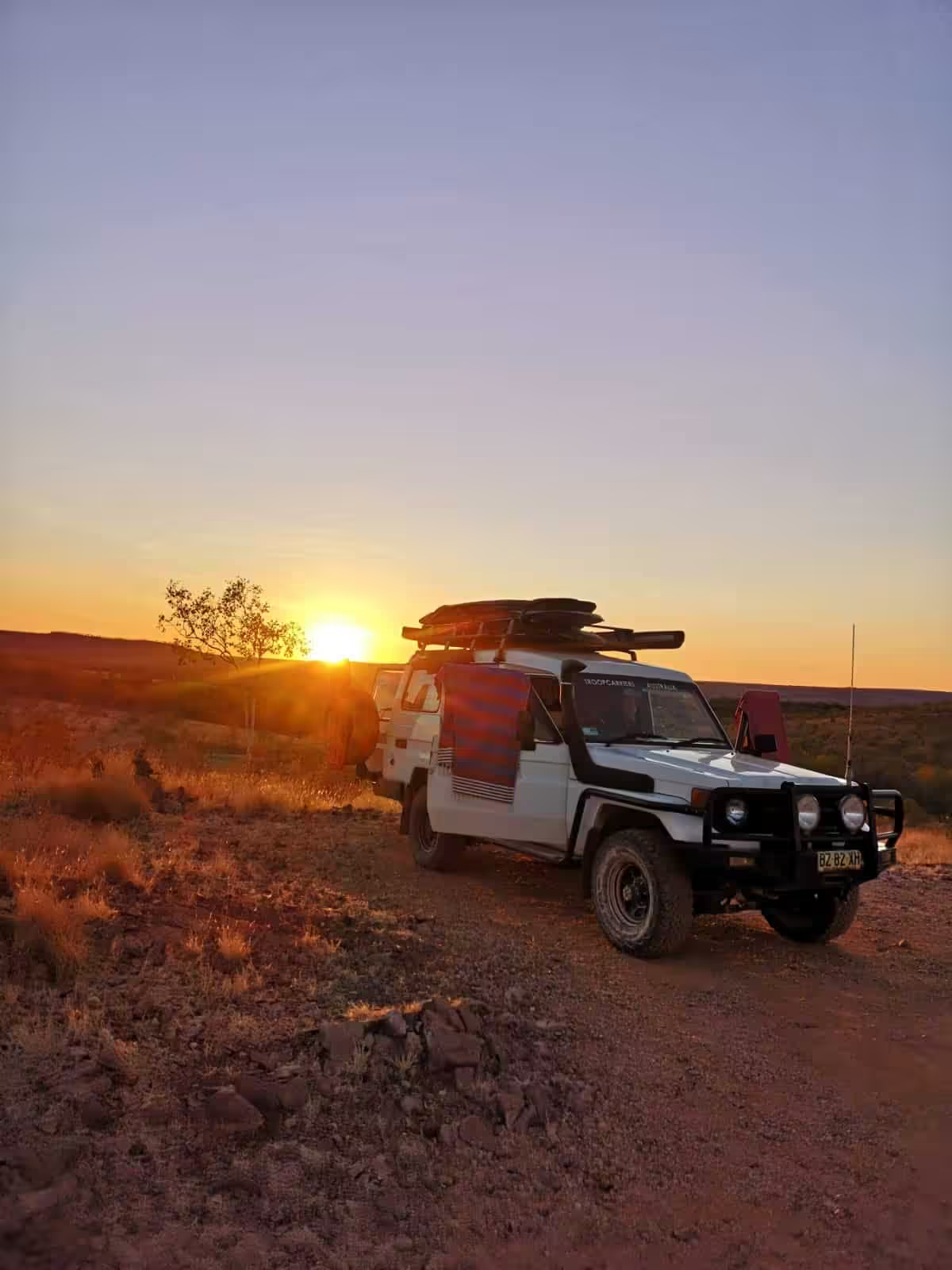
There are many ways you can set yourself up for a long-term camping trip. There are camper trailers, vans, rooftop tents, caravans, Troopys, ground tents and more. I’ve seen everything from retired couples in 200k caravans to a (very short) backpacker sleeping in a Suzuki Swift to a family of six in a 4WD and six-person ground tent. All of them travelling around the country for months or years at a time.
The trick to choosing your own long-term camping set-up is deciding on your non-negotiables. These are the most important elements you need in your camp set-up to ensure that you actually enjoy your time out there. It’s a personal choice, and everyone is different.
Some things to think about might be budget, ease of access to the bed, storage capacity, comfort, powered or unpowered, ability to stand or sit up inside, protection from the weather, 4WD or 2WD, refrigeration, indoor or outdoor cooking capability, storage for toys (bikes, surfboards etc.), ease of set up/pack down, self-contained or not, and the ability to camp incognito.
Following on from the point above, there will always be some compromise in your setup and there’s always going to be something you wish you could change. Just remember, there is no such thing as a perfect long-term camping set up and there is always a sacrifice to be made somewhere along the line. So don’t let imperfection stop you from hitting the road and having an amazing adventure.
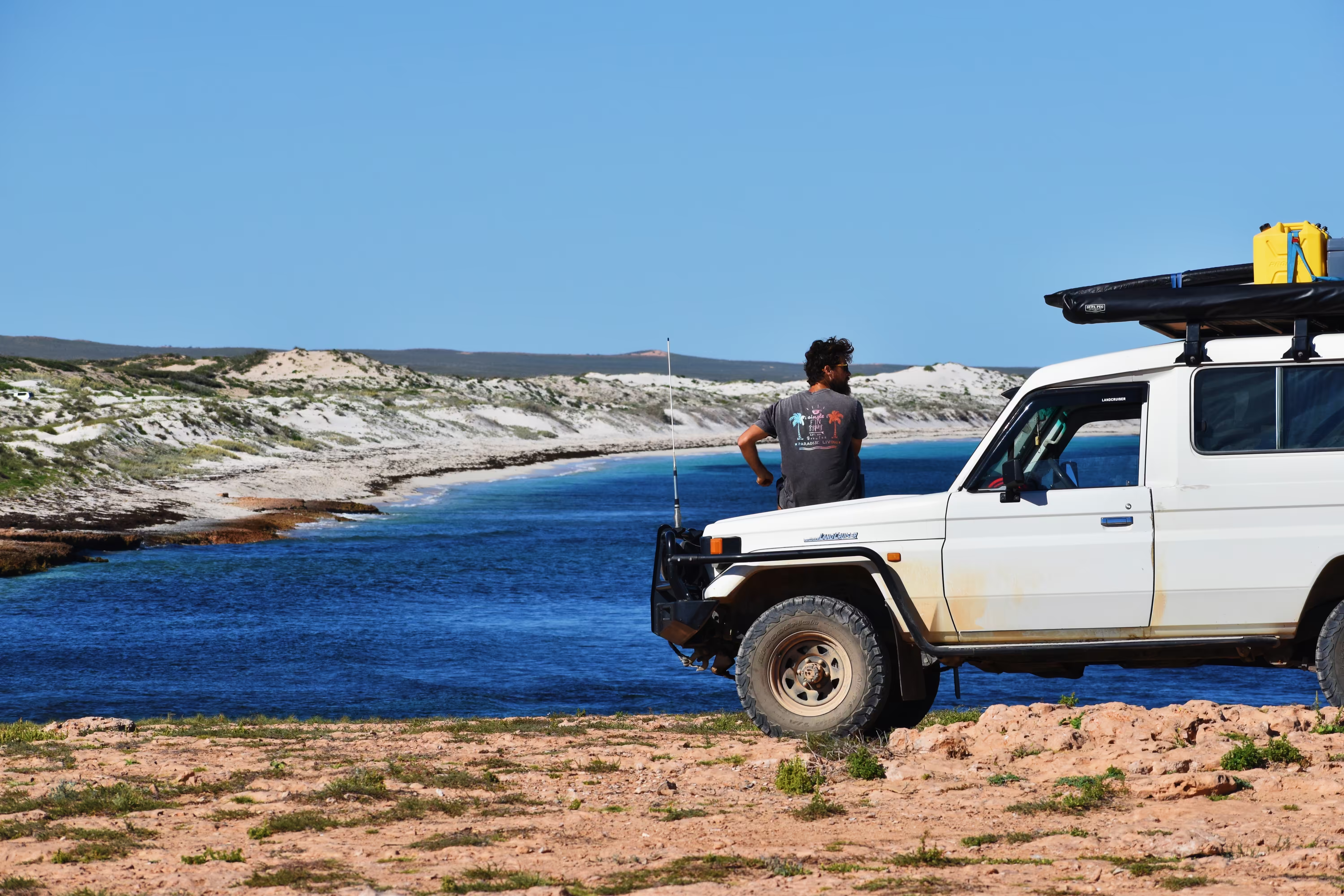
When we live in a house all the time, we get used to filling it up with stuff. But when you’re camping, particularly long-term, you’ve got far more limited space. So don’t fill it up with things unless you really think you will need them. It’s nice to have a couple of creature comforts but honestly, you’ll be amazed at how little you actually need to live your life and have a wonderful time.
Whatever you do end up buying, it’s important to make sure you don’t get carried away buying lots of expensive gear you may not need just because someone on the internet said you should. After all, there’s no point in spending all your money on your set-up only to have nothing left for your actual trip away. Good ways to keep your costs down are buying good quality second-hand gear, or even long-term borrowing from family or friends.
There are so many brands and different gear options out there it’s hard to know what to pick. If you’re buying something critical for your long-term camping set-up that you’ll use every day (like a fridge or solar panel), checking online reviews is a really good way to make sure you’re getting a good quality product. You may not want to take a chance on something that is very hit-and-miss with reviews.
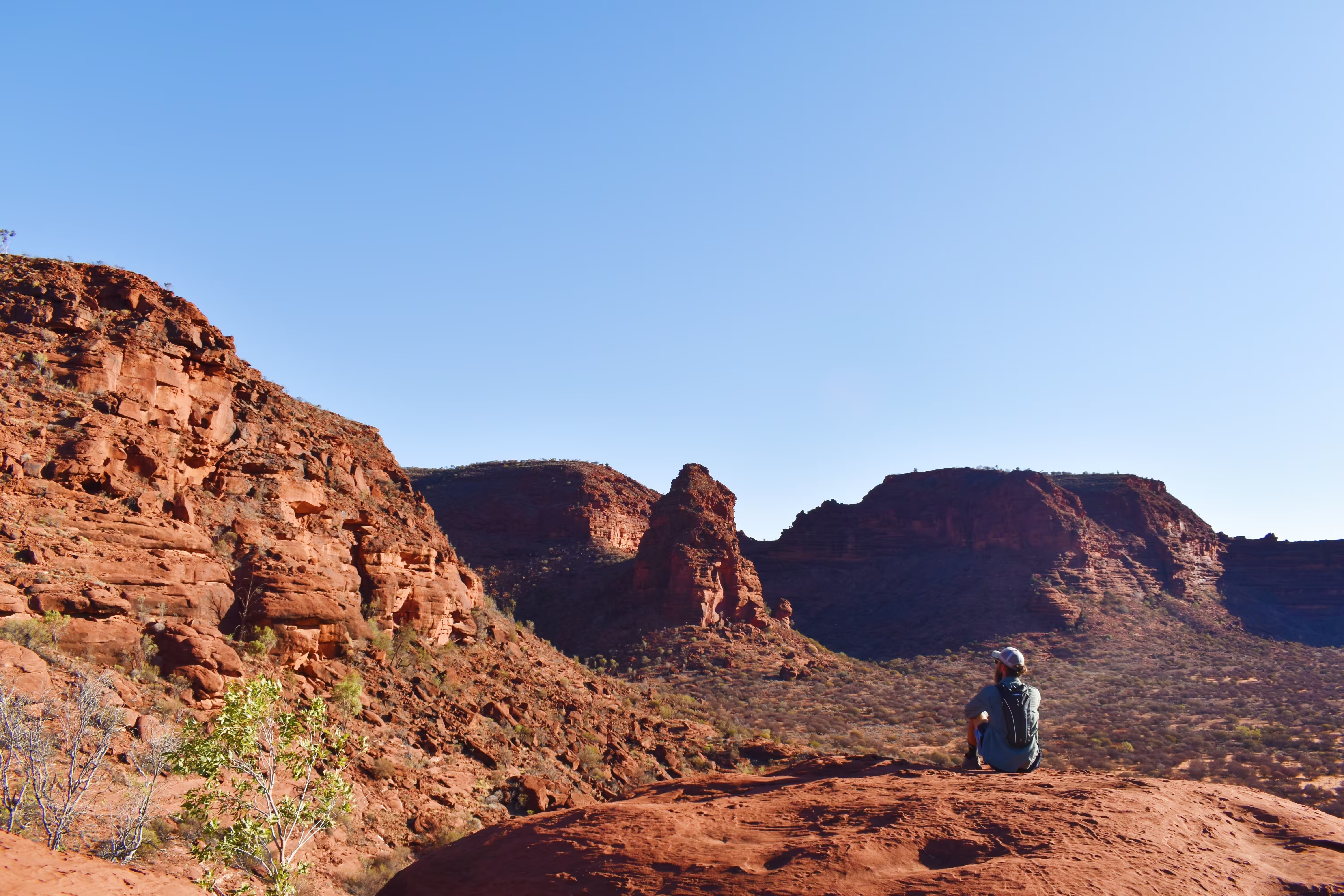
I don’t believe you need to be an experienced camper to take on a long-term camping trip. That’s what the trip is for, after all, experiencing Australia. But I would recommend making at least two short trips (even just a night or two) in your setup before you go.
Actually going camping and using your setup is the best way to figure out if you’ve forgotten something or need to change your setup. Don’t leave it too late to do this.
Chat with family or friends who have made similar trips and get their advice. People who have done long-term camping are typically excited about it and will encourage you to get out there. There’s also some great books about people’s experiences travelling around Australia. My personal favourite is Wrong Way Round by Lorna Hendry. It tells the story of a family of four with almost no camping experience, who set off on a six-month trip around Australia and ended up travelling for three years.
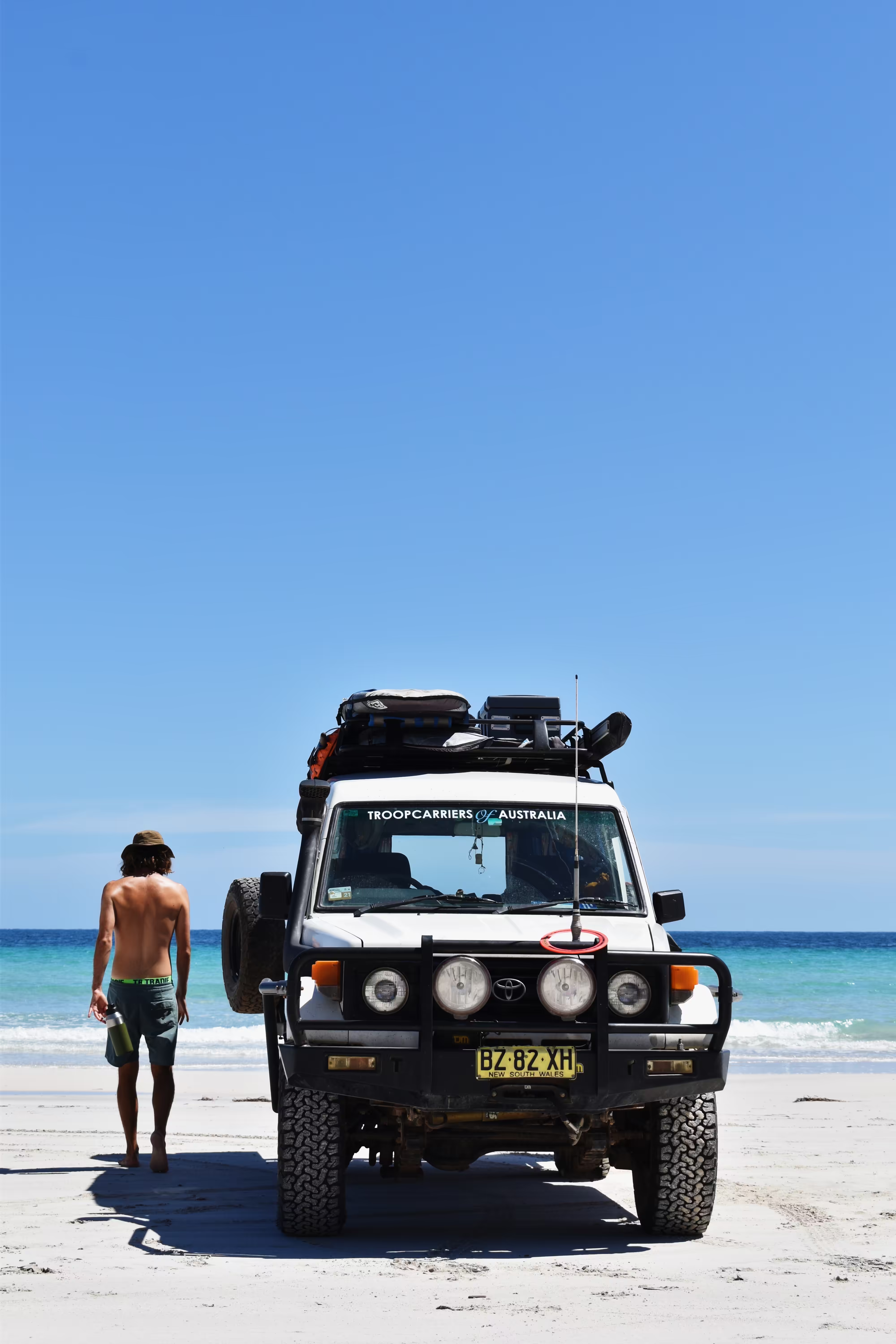
Travelling in Australia will take you to some pretty remote places so it’s good to get some knowledge on how to take care of yourself and your vehicle. Investing in a first aid course, a 4WD course (if you’re going off-road), or even learning how to replace basic parts in your car are great places to start.
Make sure you prioritise packing safety gear and keep it in easy-to-access places in your setup for a long-term camping trip. An absolute must-have is a well-stocked first aid kit. You might also like to bring a satellite phone or PLB for emergencies, a backup form of navigation in case you’re out of service, a fire extinguisher if you have indoor cooking capacity and recovery gear if you plan on doing any 4WDing.
Your everyday roadside assistance might be okay for around town, but definitely check what you’re covered for when in a remote area. You may find yourself broken down hundreds of kilometres from a mechanic, and some roads are considered too remote to send a regular tow truck down. Make sure you call and get the right cover before you go.
Not every day on the road will be amazing, and that’s okay. As in normal life, sometimes you get sick, the weather ruins your plans, your car breaks down, or you feel a bit tired and sad. When this happens, don’t beat yourself up or feel guilty. Instead, take a day to do what you need to do to feel better. That might be to rest and relax reading a book or catching up on life admin such as laundry. Sometimes you might need to book into a caravan park or a hotel and have a lovely long shower. Your mental health is as important as your physical health on the road, so look after it too!
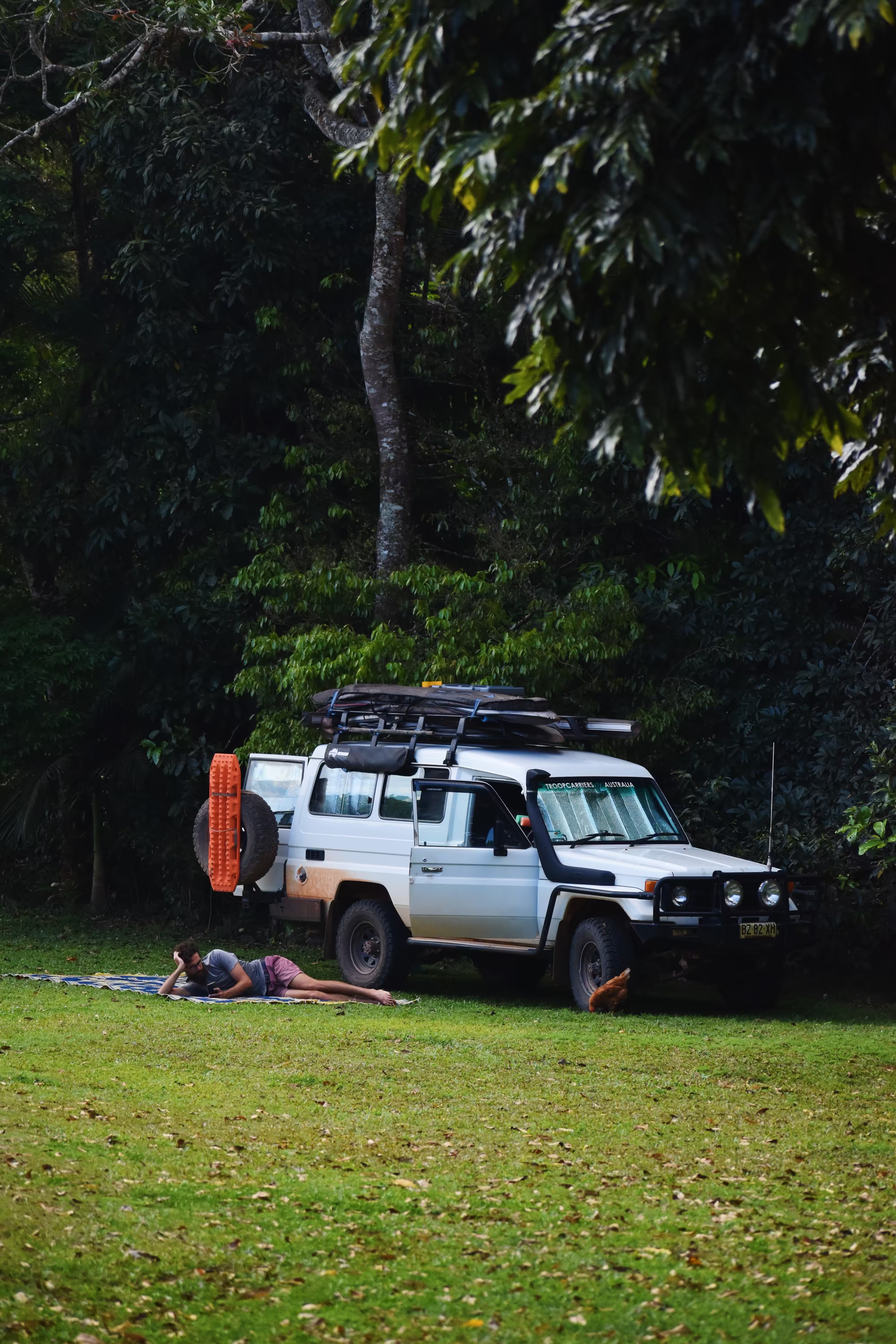
It’s tempting to start thinking ahead and locking in places to stay before you leave. But on a long-term camping trip, it’s good to leave some things open to spontaneity. You might discover somewhere you love and want to stay a little longer. Or you might not like a spot as much as you thought you would and want to move on. Or you might make some cool friends and want to adjust your route and travel with them for a while.
Some very busy towns need to be booked in advance, but it’s better to go with the flow in other quieter areas. You’ll eventually find your own rhythm of how fast or slow you like to travel and how far you feel you need to book ahead.
Australia, particularly Northern Australia, is very seasonal. In Northern Australia (Northwest WA, Northern Territory and Northern QLD), the best time to visit is from April through until October. This is during the dry season when it’s not so humid or wet. During the summer, Northern Australia gets lots of rain, and most tourism activities close down for the season. In Southern Australia, it gets warmer during summer and quite cold and wet during the winter. Planning your trip around these seasonal changes will really help to maximise your time away.
WikiCamps is a fantastic resource for campers. It’s a mobile app that displays campsites, caravan parks, points of interest and day-use areas all over Australia. You can use filters to find the sites you’re looking for and create a trip within the app to add all the places you’d like to go. It’s a goldmine for both short-term and long-term camping!
There are thousands of travellers on the road full-time who share travel tips and information about all the places they go online. These are great resources to help people see that anyone and everyone can get on the road and go camping long-term. It’s awesome to get inspiration and travel ideas from them. Just make sure you take it with a grain of salt because, as we know, social media isn’t reality.
Some places won’t live up to the hype. Just because one person loves a spot doesn’t mean everyone will. Ultimately it’s your trip, and your experience will be uniquely yours.
So whether you’re in your 20s or retired, a lifelong camper or a new adventurer, give long-term camping a go. It was one of the best things we’ve ever done. I’ve never met anyone who regretted going on a trip around Australia. Happy adventuring!